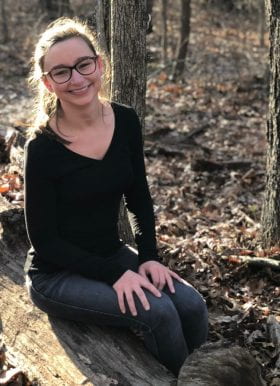
Judith Carlisle
Former Graduate Student, Philosophy, Neuroscience, Psychology
I am working on a project that attempts to highlight the ways that various disciplines or contexts define and understand trauma differently. In particular, I am looking at how the goals and aims of these different contexts seem to stretch and pull the concept in orthogonal directions.
A large part of this project explores the relationship between the psychodynamic conception of trauma and a more social, or community-based notion of trauma.
The psychodynamic conception of trauma was originally introduced by Freud, but has recently been made popular by Bessel van Der Kolk in his book The body keeps the Score – and this theory has two main parts: They argue that (1) traumatic experiences overwhelm the brain in a way that interferes with the proper functioning of our memory systems and (2) this leads to the possibility that individuals repress and forget their experiences, while still being affected negatively by those experiences.
Emerging research on memory increasingly suggests that this model is false – people don’t forget that they have been mugged, for example. They may often forget particular details of the experience but they do not forget the event itself, or that it happened to them. So, while this theory may not be true at the individual level, I want to argue that it might be usefully applied at the group level. And what I mean by that is that both of these claims seem plausibly true about communities: So, large scale, community-impacting traumatic events, such as slavery, mass shootings, or pandemics, these kinds of events do seem to overwhelm our social systems in a way that interferes with their proper functioning. Further, communities do often suppress or forget these events to some degree over time – whether as a result of explicit attempts to suppress this information or through more natural social churning processes whereby people leave the community or fail to pass on their knowledge of these events for whatever reason. Importantly, though these events still impact the community in negative ways – here, I am thinking, for example, of the ways that slavery has shaped our social and political structures to this day – or about the ways that the covid-19 pandemic might still be felt 50 to 100 years from now.
This proposal is a part of a larger project – a project I am approaching as a philosopher of science – which means my interest here is fundamentally interdisciplinary. I am interested in the ways that people talk about trauma – scientists of course, psychologists, neuroscientists, clinicians, but also people outside science, legal scholars, people interested in social justice, etc…The goal of my larger project is basically to grapple with how all these people are thinking and talking about trauma. Is there one single thing, “trauma”? If not, if there’s disagreement – does one group usage have authority over the others?